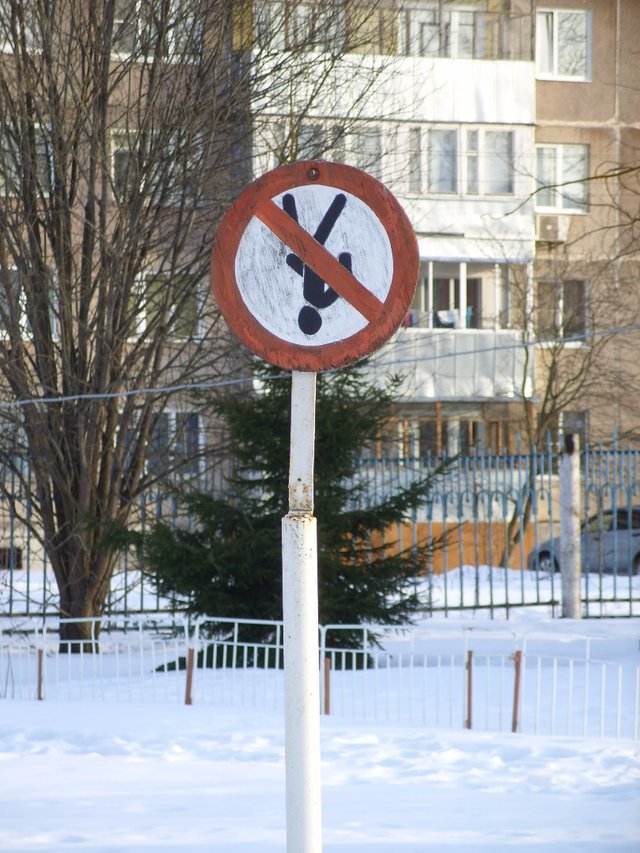[Food for Thought] The ends do not justify the means, but do the means justify the ends?
Actions have consequences. I think this doesn't come as a surprise to any of us, but I also think it's important that we fully contemplate the implications of this simple observation. I will also assert that intentions do not have consequences. I've made many mistakes in my life; I've done and said things honestly believing and planning that they improve a situation, only to make it worse. My actions had consequences, my intentions did not. This is an inevitable hazard of being a human: we all make mistakes, so we would do well to help each other mitigate the negative consequences of our mistakes and learn to act more wisely in the future, rather than pointing the finger of blame (which is merely a manifestation of our own fear that we might somehow be held responsible), which only delays the remedy.
Thus it must be concluded that the ends do not justify the means. Being creatures of finite comprehension, if we intend to create a better world, but mistakenly act in ways that cause the opposite, we must recognize our error and correct it rather than pursuing a doomed path, dogmatically asserting that our road eventually leads to the promised land and we just have to pass through the valley of shadow first. This takes humility and teachability. The vast majority of people want the same general things (safety and security, freedom to pursue things we find fulfilling, economic stability; and all of this for others as well as ourselves) and thus intend to bring about the same ends, but some actions cause negative results, no matter what intention we put behind them, and thus to be effective we must identify these harmful actions and throw off all that hinders us from reaching our goal.
The tradition of freemasonry teaches that we are collectively the builders (masons) of our world, that we are all fundamentally equal and free, and that some build with stone, which is harmful behaviors that ultimately create a dark reality; while others build with light, the beneficial behaviors that create a bright and safe world for all. Some freemasons choose to build with light (the light masons), while others choose to build with stone (the dark masons), and these building materials (the means) ultimately define what is built (the ends). The dark masons seek to be the rulers of hell, while the light masons seek to be citizens of heaven. Occult masonry attempts to manipulate people into also building with the occultist's material of choice, tricking gullible builders, who have not yet come to understand which materials are light and which are stone, into building with materials opposed to the builders' goals if necessary. Freemasonry is, at is core, the observation that actions (light/stone) have consequences (worlds of thriving/worlds of suffering).
If this framework is correct, it may then be concluded that whatever world we build, if we build it with light, it will ultimately be a world of light; but if we build it with stone, it will be a world of darkness. Some want to build a socialist world, where each strives to act for the benefit of all, and collectively we thrive. Others want to build a capitalist world, where each individual acts, through voluntary cooperation, to benefit himself, and each thrives through voluntary exchange for mutual benefit. These groups argue whether the other's world can be built or not, that the other group is trying to build something unbuildable. I encourage us to set aside predictions of what can and can't be built, and instead focus on building with light, rather than stone, and together we can learn what worlds of light are possible and what are not, for as long as we are careful to only build with light, we can learn in time what we can build with light while being certain that the result, however exactly it works, will be characterized with love and light rather than fear and darkness.
If the above framework is valid, we may conclude that the means do justify the ends, though the ends we get may not exactly match the ones we expected. Thus it should be our priority to learn which actions are light, and which actions are stone.

With a background in software development and a passion for security, Nathan has identified blockchain technology as his niche. He is dedicated to creating applications which empower individuals to shape a better world for themselves and others.
This a good illustration of the "Road to hell being paved with good intentions" concept.
In What is Seen and What is Unseen, (I think that is the title) Bastiat expounds on the unseen consequnces of certain actions. I just wonder how much of our society functions on the notion of some people willfully avoiding looking for unseen consequenses, while trying to distract and shame others from considering them too.
Logic is awesome~
So many people operate out of emotional fear and indoctrinated belief that they cannot use the simple success of logic.
I hope people let go of the programmed beliefs and fear based reactions and learn to simply think logically.
Life would be way easier and far more successful~*~
@modprobe
Great to understand! :)
But intentions affect your actions, and actions have consequences. The link between our intentions and how we act is so imperfect that sometimes our original goals don't filter through at all. I think what you're saying is that what actually happens is the result of actions, not that intentions have literally no effect on the world.
I'm not that familiar with freemasonry and enjoyed learning a bit.
Thanks!
Yeah, I was hoping the freemasonry bit would be valuable to people, since most don't know anything about it, but it's a very old tradition and rich with insight. As with all philosophical systems, it should be taken for what it is and not accepted blindly, but the perspectives it provides are incredibly valuable.
I still contend intentions have no effect on reality. This certainly doesn't mean that intentions aren't important -- they absolutely are. One's intentions inform what world he will build and whether others will help or oppose him, but his actions are the only things that affect how that world turns out. The physical world does not give two bits about intentions. The same action will yield the same result, regardless of the intent behind it. The intent behind it will define what further actions the mason takes upon realizing the results of his previous actions, though.
It was valuable to me. I heard about it from my grandfather and thought it was silly that only men attend and they wear a ring, but I also know there's more to it than that.
I see what you're saying. Our definitions of "having an effect" just differ.
Very insightful post - and just when I was doing some research on freemasonry - any good recommendations?
And yes, agreed that someitmes no matter how much you plan for things, unintended consequences could really get out of hand. Likewise with any innovation, no one really knows what's the end product until it's made and used by others.
Mark Passio's podcast is an excellent resource, as are his videos. The podcast is intended to be listened to linearly from start to end, but I note that episodes 52+ deal heavily in freemasonry in particular.
http://www.whatonearthishappening.com/podcast?start=150
Ah thanks! I do follow Mark Passio's stuff - but not the whole breadth of his work, thanks for this particular episode!
just be yourself and do what you must, come what may, God will provide

wellcome
https://steemit.com/photography/@romanskv/russian-march-2016-fotos-by-romanskv
Keep On Steemin
if you can back votes my blog ?
https://steemit.com/photography/@zein/the-beach-where-i-live-original-work
Downvoted because it's irrelevant and spammy. Please make comments on my post relevant to my post.